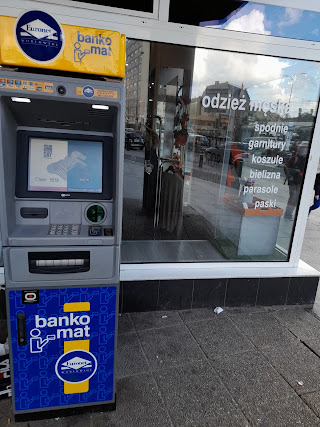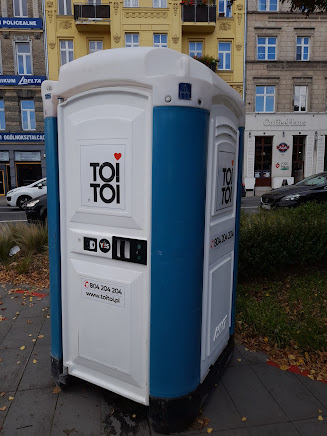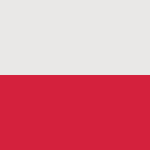Practical information
#Warsaw tour guide #Warsaw city guide # guided tour in warsaw #Warszawa tour guide #Warszawa city guide #guided tour in Warszawa
Senior travellers may remember how You once exchanged Your $ or D-mark into Polish Monopoly-money with the taxi driver, the waiter or in a gate. This is now just a memory from the past.
Cash will best be exchanged at exchange offices (Kantor or Forex), not in banks. It will make sense to compare the exchange rate in different offices. At airports, railway stations and places with a large amount of tourists the difference between the selling and buying rate may be well above 10%, while most kantors will only charge a small percentage. You do not normally pay a fixed fee, so it won’t set You back to change five pounds in order to have some small change.
By and large all shops, hotels and restaurants in Warsaw accept international credit cards, and You will always be able to find an ATM, that will hand you some Polish zloty. Be aware, that the charge for cashing money in the ATM may vary considerably.

Insert the card and it will spit out Polish zlotys
In general You don’t need much cash, but one may come across a market stall, that only accepts cash. You may also need cash, if You need to go to a public toilet.
As a general rule tips are included everywhere, but many people leave a bit extra on restaurants, if they are satisfied, and just as many don’t pay anything extra. Personally I give around 5% if I believe the service to be OK, but some people think 10% is the right amount. You will not normally give tips if You collect your food and beverages at a counter. I normally give tips in cash, also when I pay the bill with a credit card; this ensures, that no one else take a part of the waiter’s tip.
You may give a few zloty for some other services (taxi, hair dresser, massage), but it is rather an exception than a rule. Personally I normally leave a few zloty for the chambermaid, when I leave a hotel room.
In shopping malls, museums, bars and restaurants You can normally use the toilet without charge. In some places (i.e. McDonald’s) You may have to ask for a key or use a PIN-code from your receipt in order to use the toilet.

Free-standing toilet from ToiToi – available with coin slot and free version
Public lavatories will normally cost up to 3 zloty, and it is therefore advisable to carry a few coins when you walk around town, unless You are able to wait.
In places with many tourists You will often find cabin toilets, that will often require a coin to open the door.
Be aware of gender differences, specially among older people. For a man it is normal to open the door for a woman, and women will be the first to enter the lift. Being a woman You may also be at risk of receiving a kiss on the hand. Younger men a less courteous, and being a tourist Yoy shouldn’t try to copy hand kissing.
220 volt – The sockets are continental European.
Local shops are often open from 6 or 7 a.m. till late evenings. Most normal stores are open from 9, 10 or 11 a.m. and close around 6 p.m., while many shopping malls are open till 9 or 10 p.m. With few exceptions before holidays larger shops are closed on Sundays, while small shops can be open, i.e. the Polish version of 7-eleven, which is called Żabka (the little frog), where You can also have coffee and hot dogs at a fair price as well as vodka, beer and convenience goods at exorbitant prices.
Cafés will be open early, most restaurants open from midday, but many close quite early in the evening.
Except from special smoking cabins you are not allowed to smoke in airports, at railway stations, offices, hospitals and most indoor areas.
Some large restaurants have smoking areas, but it is rare to get a hotel room, where smoking is allowed.
The price level is reasonable, like in neighbouring countries.
Remember that alcohol should be consumed at home or in pubs. It is forbidden to drink any kind of alcoholic beverages in the street, parks or beaches.
The tap water has long been considered unfit for drinking due to a bad smell, taste and harmful substances. The past decade and a lot of EU money has changed all that though. Today water from the tap is generally good and healthy all over Poland, but most of my friends don’t drink it unless it’s been boiled (whereas I’m personally happy to drink it). Water in plastic bottles can be bought anywhere, and it will probably continue like this for the years to come.
Polish police provide information about traffic laws in Poland. Be aware that it is illegal to drive a car with more than 0.02 per cent alcohol in your blood. If you exceed 0.05 per cent there is a high probability of a prison sentence.
The speed limit is 140 km/h on motorways, 120 km/h on dual carriageways, 90 km/h outside built-up areas and 50 km/h in built-up areas. Speed may be further limited by signposting.
Polish police inform in the link about rod safety in Poland in English. You can also browse to Personal safety, Police advice and Safe shopping.
Please send an email to m@hardenfelt.pl if you would like an English-speaking tour guide to show you the most important places in Warsaw.
